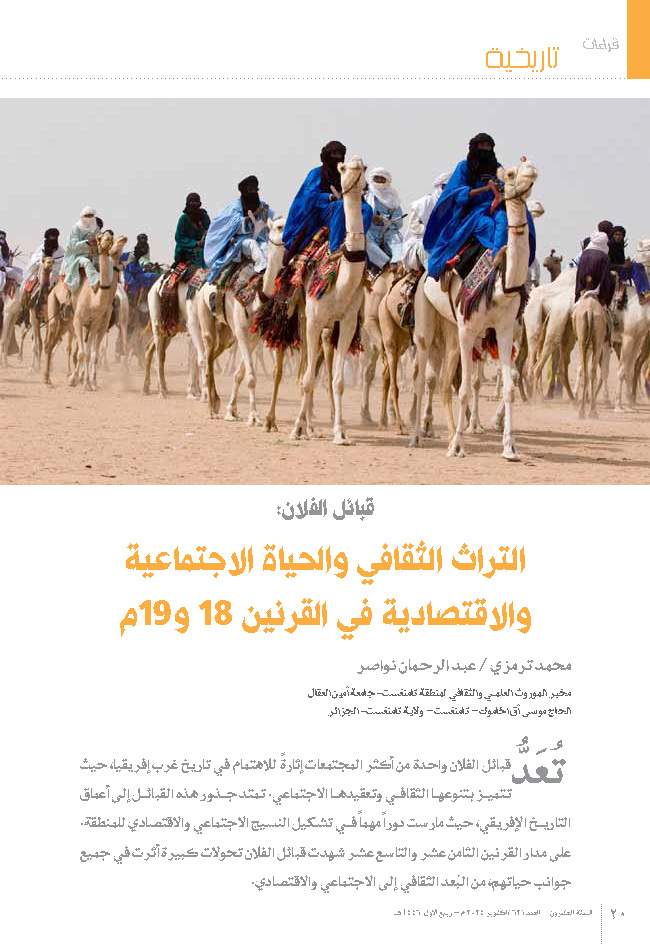Publisher: Qira’at Afriqiyah Magazine
Issue: 62, October 2024
ISSN: 2634-131X
Year : 20
Pages: 20-35
Author: Mohamed Tarmazi & Abderrahmane Nouasser
Download pdf

Abstract:
The article titled "Fulani Tribes: Cultural Heritage and Socioeconomic Life in the 18th and 19th Centuries" explores the Fulani tribes' cultural, social, and economic development in West Africa during this period. It highlights how historical and geographical changes shaped the identity of the Fulani and their contributions to African history. The Fulani are noted for their unique cultural heritage, which includes their pastoral lifestyle, language, and customs. The article discusses how the Fulani's social structure was highly hierarchical, with divisions between free people and slaves. Families played a central role in maintaining societal cohesion, particularly in economic activities, as Fulani society was largely structured around cattle rearing and seasonal farming. Cattle herding was the primary livelihood, supported by trade in dairy products, livestock, and grains, ensuring their economic stability. Religiously, the Fulani experienced a significant Islamic influence during the 18th and 19th centuries, as Islam spread widely among them, particularly through the efforts of the "Torodbe" group, which played a critical role in disseminating Islamic teachings in the region. Despite this, many traditional beliefs and practices remained ingrained in Fulani culture, blending with Islamic principles over time. The article points out that the Fulani's ability to balance these cultural elements contributed to their unique identity. The article also details the migrations of the Fulani, driven by environmental and political factors. These migrations enabled them to expand across vast regions of West Africa, interacting with other African communities and influencing regional politics and economics. Their adaptability to different environments and circumstances helped preserve their cultural identity despite the challenges posed by colonization and changing political dynamics. In conclusion, the Fulani's rich cultural heritage, complex social structures, and adaptability made them a vital part of West African history. The Fulani tribes not only maintained their cultural identity amid shifting regional and global forces, but they also played a significant role in the social and political landscape of the region during the 18th and 19th centuries.
